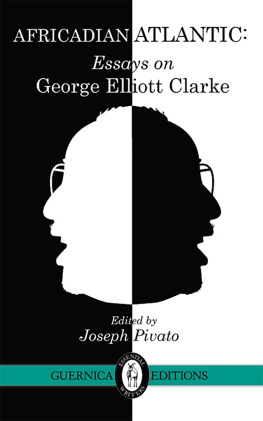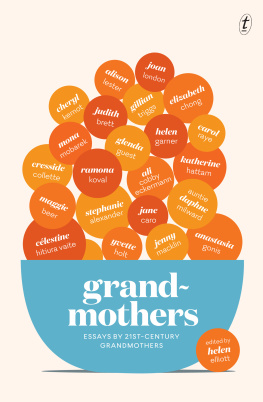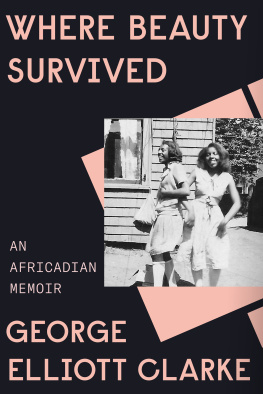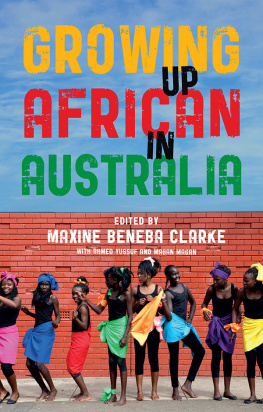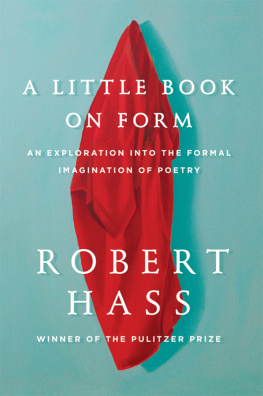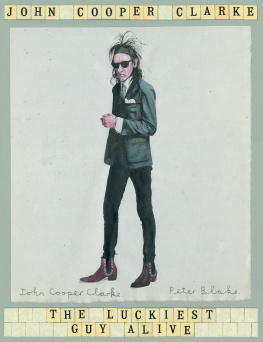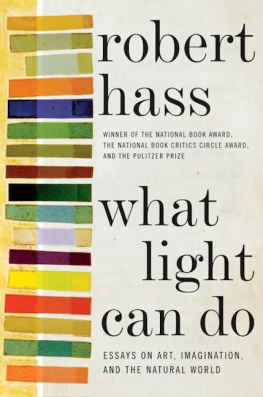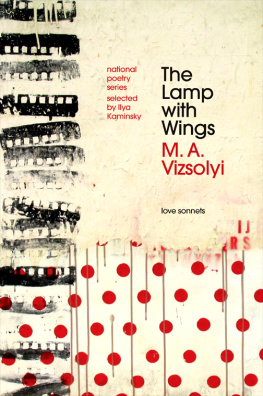AFRICADIAN ATLANTIC:
Essays on
George Elliott Clarke

Guernica Editions Inc. acknowledges the support of
the Canada Council for the Arts and the Ontario Arts Council.
The Ontario Arts Council is an agency of the Government of Ontario
AFRICADIAN ATLANTIC:
Essays on
George Elliott Clarke
Edited by
Joseph Pivato

GUERNICA
TORONTOBUFFALOBERKELEYLANCASTER (U.K.) 2012
Copyright 2012, Joseph Pivato, the authors and Guernica Editions Inc. All rights reserved. The use of any part of this publication, reproduced, transmitted in any form or by any means, electronic, mechanical, photocopying, recording or otherwise stored in a retrieval system, without the prior consent of the publisher is an infringement of the copyright law.
Michael Mirolla, general editor
Joseph Pivato, series editor
Guernica Editions Inc.
P.O. Box 117, Station P, Toronto (ON), Canada M5S 2S6
2250 Military Road, Tonawanda, N.Y. 14150-6000 U.S.A.
Interior Design by Sun Editing & Book Design
Distributors:
University of Toronto Press Distribution,
5201 Dufferin Street, Toronto (ON), Canada M3H 5T8
Gazelle Book Services, White Cross Mills, High Town, Lancaster
LA1 4XS U.K.
Small Press Distribution, 1341 Seventh St., Berkeley, CA
94710-1409 U.S.A.
First edition.
Printed in Canada.
Legal Deposit First Quarter
Library of Congress Catalog Card Number: 2012938357
______________________________________________
Library and Archives Canada Cataloguing in Publication
Africadian Atlantic : essays on George Elliott Clarke / Joseph Pivato, editor.
(Writers series ; 35)
Issued also in electronic format.
ISBN 978-1-55071-627-6
1.Clarke, George Elliott, 1960- --Criticism and interpretation. 2. Black Canadians in literature. I. Pivato, Joseph II. Series: Writers series (Toronto, Ont.) ; 35
PS8555.L3748Z56 2012 C811.54 C2012-902903-3
Introduction in Two Parts

T his essay collection is the first devoted entirely to the work of George Elliott Clarke, a writer whose critical and literary intervention in Canadian and post-colonial, English-speaking cultures merits examination. Clarke is an imaginative and authoritative scholar who has contributed mightily to efforts to democratize how we read Canadas history, languages, and diverse cultures. His production has raised questions about race, ethnic identity, and the position of minority women. In my own work on Italian-Canadian writers working in English, French and Italian, I have found Clarkes creative work and academic essays invaluable for their insight into the racialization of ethnic minority people in North America and Europe. Likewise, he has graciously cited my scholarship as an inspiration and incitement to his own. I have organized this introduction into two parts: part one, my personal experience of George Elliott Clarke and his work, and, part two, my commentary on the essays in this collection.
Part One: Personal Journeys
I have known George for two decadesprimarily through my work on ethnic minority writers and the academics who write about post-colonial literature. We share a positive view about Canadian multiculturalism as actually working when we see different communities acknowledge each other and discuss similar experiences. We do not ignore the problems that cultural diversity can produce, since these are often what we write about in our studies. We both believe that ethnic minority writers must also review critically works by other minority writers in order to establish the critical recognition of different literatures. For this reason, for example, Clarke was invited as the keynote speaker at the biannual conference of the Association of Italian-Canadian Writers in 2002. He spoke about the importance of creating anthologies for groups of ethnic minority writers by comparing the first national Black-Canadian anthology, Canada In Us Now edited by Harold Head (1976) and the first Italian-Canadian anthology, Roman Candles edited by Pier Giorgio Di Cicco (1978). Clarke holds that these are positive examples that other groups of minority writers should follow.
George Elliott Clarke has received considerable critical recognition for his original poetry, plays, novels and libretti and also for his studious essays and books on post-colonial literature. His literary achievements alone are significant, but to me, a fellow minority intellectual, the social contribution he has made to the fostering of Black literature in Canada is also vital. He has done this through his own work, through his anthologies and studies of other Black writers, by lecturing on these writers overseas, and by considering the historical experience of other ethnic minority groups in Canada.
He began this enterprise in 1991 by editing the two-volume Fire on the Water: An Anthology of Black Nova Scotian Writing and, later, Eyeing the North Star: Directions in African-Canadian Literature (1997). He has urged on further academic recognition of this writing by publishing pioneering essays in many literary journals. This project culminated in his seminal book, Odysseys Home: Mapping African-Canadian Literature (2002), a 490-page outline of the history and particular challenges of Black writingand critique thereofin Canada. In this work, Clarke confronts several of the ideological issues in post-colonial theory, identifies the major texts and focuses on some of the most published authors such as Austin Clarke, Dionne Brand, Marlene NourbeSe Philip, and Claire Harris. His follow-up tome is Directions Home: Approaches to African-Canadian Literature (2012), which builds on the earlier volume and expands Clarkes analysis of little-known texts, post-colonial theory, as well as significant contemporary writers.
My views on Clarke as the post-colonial scholar changed when I saw his opera, Beatrice Chancy, performed in Edmonton in 2001. This new Canadian opera had such an impact on me that it inspired me to compile this book of studies devoted to Clarkes creative writing. Clarke has published several provocative essays such as, Treason of the Black Intellectuals? and Must All Blackness Be American? and his academic book, Odysseys Home, but his lasting legacy to literature may primarily be his lettered art.
When Beatrice Chancy was staged in Edmonton in 2001 at the Citadel Theatre, the performances were sold-out and critically lauded. The Citadel Theatre, the most important venue for live theatre in Alberta, made this new Canadian opera the highlight of the season. Fascinatingly, this Canadian opera also has Italian connections. Clarkes verse play, Beatrice Chancy, was inspired by the tragic story of the Cenci family, Roman nobles of the late 1500s, and by Percy Bysshe Shelleys verse play, The Cenci (1819). Clarke completed this work in 1998 during his sojourn in Bellagio, Italy, while on a Rockefeller Foundation Fellowship. Between 1999 and 2001, Beatrice Chancy was performed as a chamber opera in Halifax, Edmonton, and Toronto. It was also aired by CBC television in February 2001, thus becoming the first Canadian opera to receive a television broadcast in roughly three decades. The music was composed by James Rolfe. The lead, Beatrice, was sung by the young soprano, Measha Bruggergosman, who is now an international opera star. Clarke has since written libretti for two other operas, thus continuing to experiment with this medium and its conventions.
Next page
